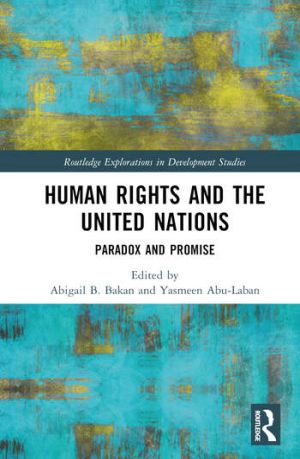
This book considers the complex and contradictory role of the United Nations when it comes to human rights around the world. It depicts the United Nations as a global arena in which state and non-state actors continuously contest issues around human rights. This ongoing contestation simultaneously produces both advances and setbacks when it comes to the rights of stateless populations, women, Indigenous Peoples, racialized people, as well as rights related to health and the environment.
Since the 1948 Universal Declaration of Human Rights and throughout various subsequent expansions, conventions and declarations, the United Nations has been central to the development and advancement of human rights as a primary, stated goal of global governance. However, there are various inherent contradictory tensions and challenges embedded in United Nations promise for human rights. This timely collection investigates the United Nations’ role as knowledge producer, its relation to non-state actors, and the United Nations’ role as a system for grouping sovereign states, where there is uneven buy-in within non-binding agreements and tensions between national sovereignty and human rights. At a time when the world faces existential challenges from climate change to pandemics, which disproportionately impact the world’s most vulnerable populations, this book addresses future challenges and possibilities for the United Nations.
Human Rights and the United Nations: Paradox and Promise will be an important read for researchers and students across the fields of human rights, political science, international relations and global development, as well as for United Nations and governmental policy analysts and advisors.